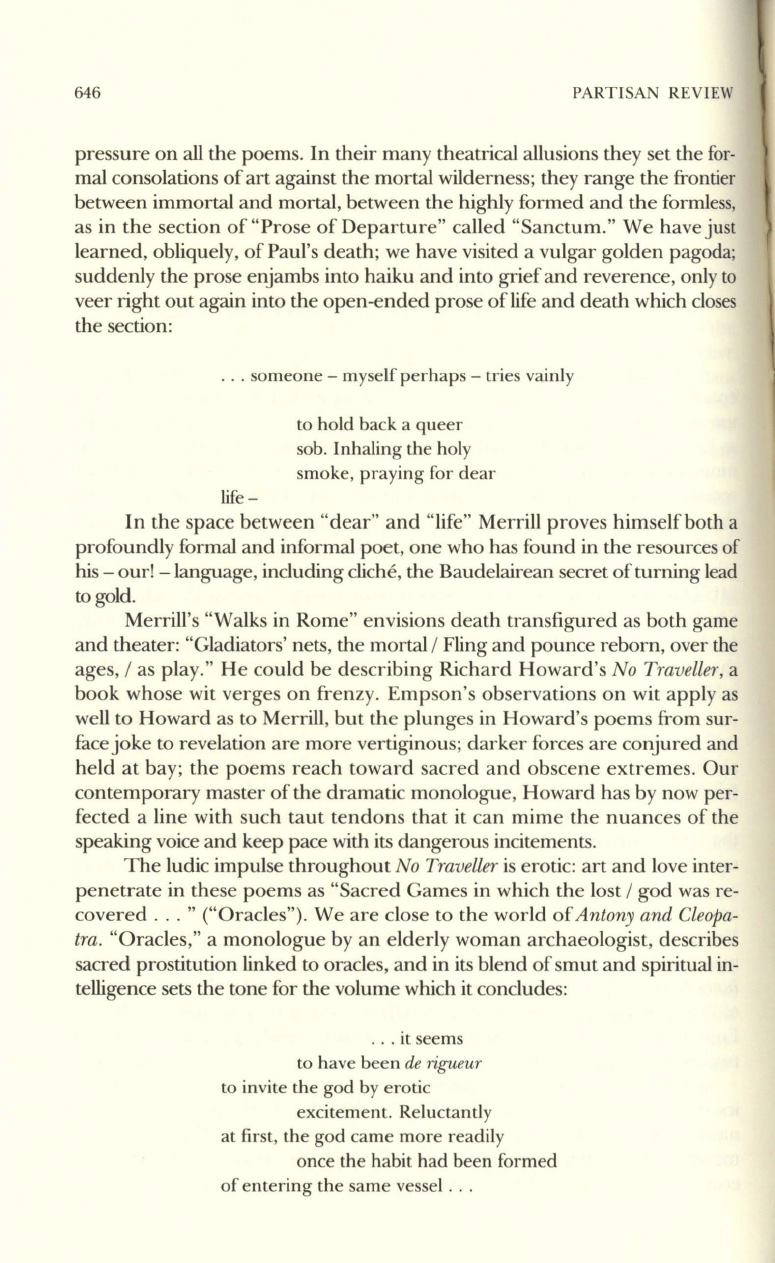
646
PARTISAN REVIEW
pressure on all the poems. In their many theatrical allusions they set the for–
mal consolations of art against the mortal wilderness; they range the frontier
between immortal and mortal, between the highly formed and the formless,
as in the section of "Prose of Departure" called "Sanctum." We have just
learned, obliquely, of Paul's death; we have visited a vulgar golden pagoda;
suddenly the prose enjambs into haiku and into grief and reverence, only to
veer right out again into the open-ended prose of life and death which closes
the section:
... someone - myself perhaps - tries vainly
life -
to hold back a queer
sob. Inhaling the holy
smoke, praying for dear
In the space between "dear" and "life" Merrill proves himself both a
profoundly formal and informal poet, one who has found in the resources of
his - our! -language, including cliche, the Baudelairean secret of turning lead
to
gold.
Merrill's "Walks in Rome" envisions death transfigured as both game
and theater: "Gladiators' nets, the mortal / Fling and pounce reborn, over the
ages, / as play." He could be describing Richard Howard's
No Traveller,
a
book whose wit verges on frenzy . Empson's observations on wit apply as
well to Howard as to Merrill, but the plunges in Howard's poems from sur–
face joke to revelation are more vertiginous; darker forces are conjured and
held at bay; the poems reach toward sacred and obscene extremes. Our
contemporary master of the dramatic monologue, Howard has by now per–
fected a line with such taut tendons that it can mime the nuances of the
speaking voice and keep pace with its dangerous incitements.
The ludic impulse throughout
No Traveller
is erotic: art and love inter–
penetrate in these poems as "Sacred Games in which the lost / god was re–
covered ... " ("Oracles"). We are close to the world of
Antony and
Cleopa–
tra.
"Oracles," a monologue by an elderly woman archaeologist, describes
sacred prostitution linked to oracles, and in its blend of smut and spiritual
in–
telligence sets the tone for the volume which it concludes:
.. . it seems
to have been
de rigueur
to invite the god by erotic
excitement. Reluctantly
at first, the god came more readily
once the habit had been formed
of entering the same vessel ...


